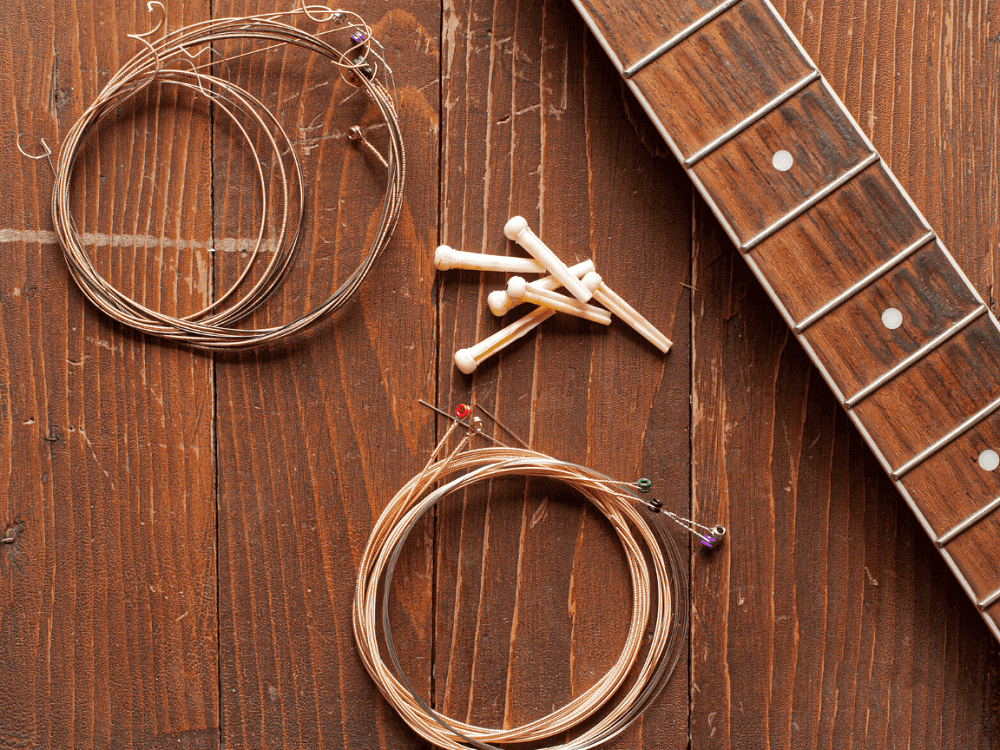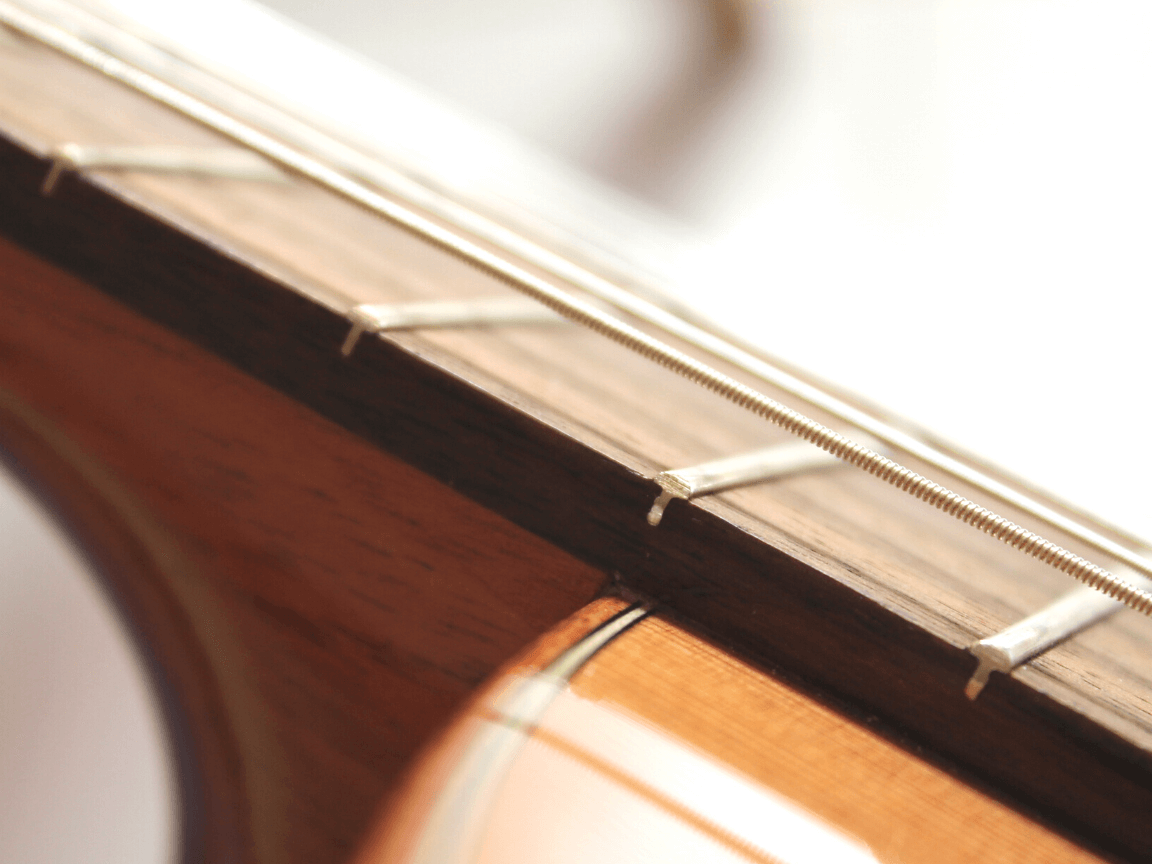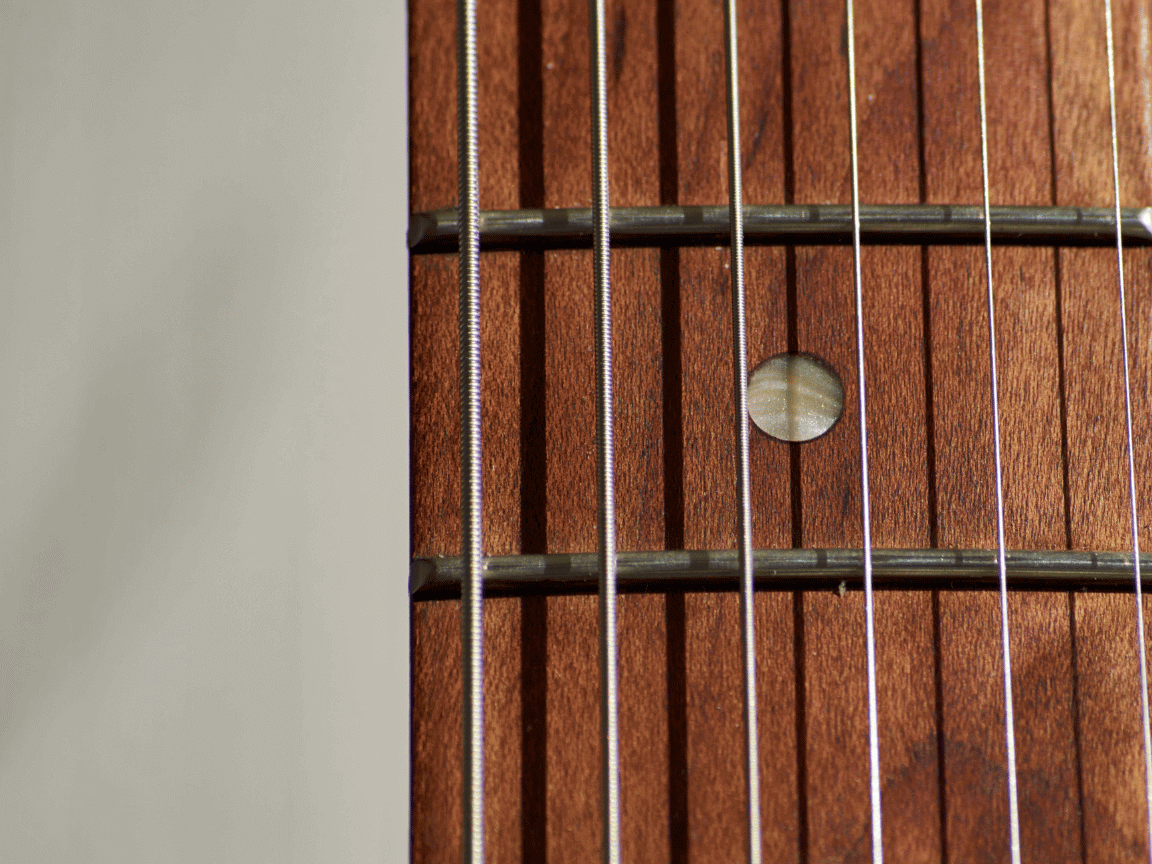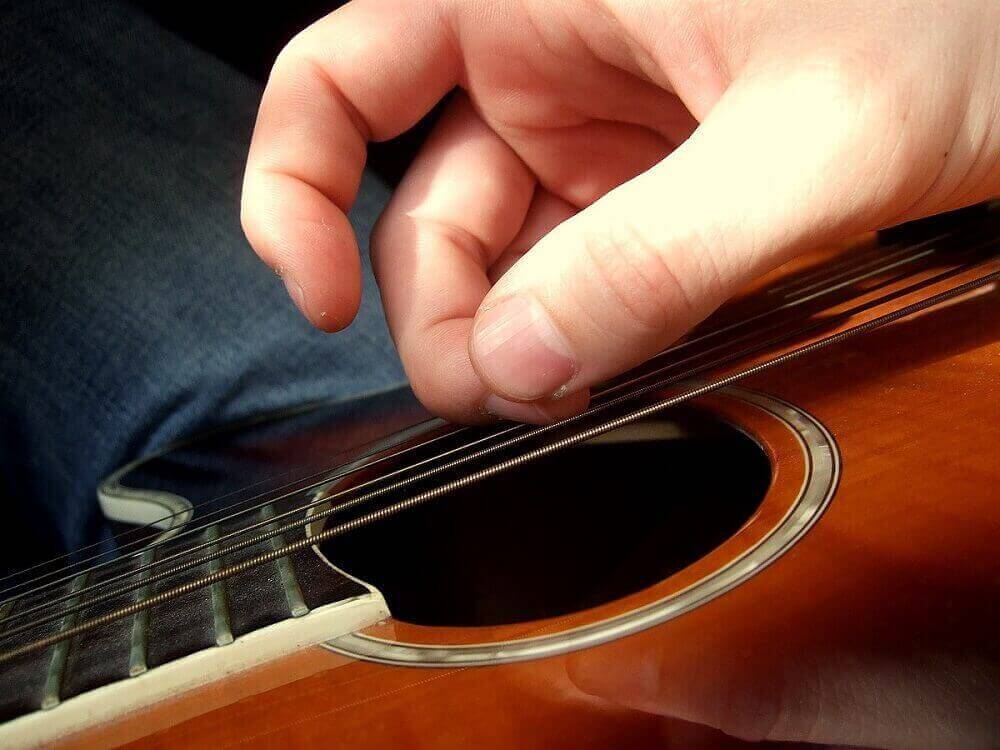Have you ever wondered if playing the guitar could be dangerous? Can guitar strings cut your fingers?
These are questions many guitarists have asked themselves, especially when they start to feel the sting of a string on their fingers.
In this article, we’ll explore these questions in detail, and what you can do to protect yourself while playing.
We’ll also take a look at the different types of strings, the materials they’re made of, and the importance of proper technique and maintenance when it comes to avoiding injury.
Finally, we’ll provide some tips on how to protect yourself and your instrument from potential damage.
Table of Contents
- Can guitar strings cut your fingers?
- Are guitar strings dangerous?
- How can guitar strings cut you?
- What are the potential risks of guitar strings?
- How can you prevent injury from guitar strings?
- What should you do if you cut yourself with a guitar string?
- Are there alternatives to traditional guitar strings?
- Final thoughts
Can guitar strings cut your fingers?
Yes, guitar strings can cut you if you’re not careful. The metal strings can be sharp on the tips, so it is important to be mindful when handling them. Other than that, though, guitar strings should not cut very easily, unless you mishandle them.
In other words, usually, the first, second, and third strings are sharper since they have fewer windings than the thicker strings.
But this doesn’t mean that by simply playing the guitar, you will get hurt.
It is important to be aware of the strings’ sharpness and take the necessary precautions when handling them.
Unless you intentionally stab yourself with the strings, it is very unlikely that you will get injured from playing the guitar or handling the strings.
On the other hand, I would say to be careful with your eyes and to always be aware of where you place the strings.
Are guitar strings dangerous?
When it comes to playing the guitar, many people don’t think twice about the strings, and I mean why should they?
After all, playing the guitar is meant to be a relaxing and enjoyable pastime! However, it’s important to remember that guitar strings can be dangerous if not handled correctly.
Strings are under tension when they are on your instrument, so you don’t want to touch them too hard or in a way that you break them.
If a string breaks, it can be very dangerous because the ends of the strings are very sharp and could cause serious injury.
Strings also contain metal, which means they should never come into contact with open wounds or cuts as this can lead to infection.
It’s important to always be as careful as possible when playing the guitar and to always make sure that you are wearing protective gear if needed.
Lastly, it’s also important to regularly change your strings every few months in order to keep them in top condition and reduce the risk of injury by broken strings.
How can guitar strings cut you?
Guitar strings can easily cut you if you’re not careful, but not in a way that by simply touching them you would get cut.
Instead, when the strings are under tension, they can easily break and the ends of the string pieces become sharp and jagged.
With enough force, these sharp edges could easily cut skin, so it’s important to always be aware of this risk when playing.
The sharp ends of a broken string can puncture the skin, leading to a small but uncomfortable wound.
When it comes to replacing your strings, always make sure that you have cut off the old strings far away from your body as possible.

Additionally, you should consider wearing protective gloves when handling old strings or replacing them to reduce the risk of an accidental cut.
Lastly, again, as I said before, it’s also important to remember that guitar strings contain metal, so they should not come into contact with open wounds or cuts whatsoever.
What are the potential risks of guitar strings?
Playing guitar is a great way to express yourself and have fun, but it’s important to be aware of the potential risks associated with guitar strings.
Strings are made of metal, which can cause skin irritation and even cuts if not properly handled.
It’s important to take the time to ensure your strings are properly stretched and tuned to avoid any potential issues.
Additionally, strings can be prone to breaking, which can cause sharp pieces of metal to fly off and potentially injure someone.

To prevent this, make sure to check your strings regularly for any signs of wear and tear.
If you notice any fraying or thinning, it’s best to replace them as soon as possible.
Finally, it’s important to be aware of the potential for an electric shock when playing an electric guitar.
To avoid this, make sure to check your guitar and its wiring for any signs of damage before playing, beside that, it’s always a good idea to unplug your instrument when not in use.
How can you prevent injury from guitar strings?
When it comes to preventing injury from guitar strings, the most important thing is to make sure you’re using the right strings and that they’re in good condition.
Make sure you’re using strings that are the right gauge for your guitar and your playing style.
- If you’re playing a lot of heavy metal, for example, you’ll want to use heavier strings.
- If you’re playing lighter music, you’ll want to use lighter strings.
Also, make sure the strings are in good condition and not too old or worn out since old strings can snap more easily and can be more dangerous if they break.
Another important factor is to make sure your guitar is properly set up.
If the strings are too high or too low, it can cause strain on your fingers and lead to potential injury.
What should you do if you cut yourself with a guitar string?
If you cut yourself on a guitar string, the first thing to do is to stop playing and assess the situation in the best way possible.
Make sure to apply pressure to the wound to help stop the bleeding if it’s in fact bleeding.
Once the bleeding has been stopped, clean the wound thoroughly with soap and water.
If the wound is minor, you can just apply a bandage or antibiotic ointment.
Change the bandage or dressing daily and make sure to wash your hands before and after changing the dressing.
If the wound is not healing properly or if you experience any signs of infection, such as redness, swelling, or increased pain, you should seek medical attention.
Are there alternatives to traditional guitar strings?
Yes, there are alternatives to traditional guitar strings!
Many guitarists opt for alternative strings to get different sounds, textures, and tones out of their instruments.
Some of the most popular alternatives include coated strings, which are designed to last longer than traditional strings, and synthetic gut strings, which provide a warm and mellow tone.

There are also specialty strings, such as flat-wound strings, which are designed to produce a smoother, mellower sound, and tape-wound strings, which are designed to produce a softer, more mellow sound.
On the other hand, there are also alternative materials, such as nylon strings (one of my favorites) which are designed to produce a softer, more mellow sound.
Final thoughts
Overall, it can be seen that guitar strings can indeed cut you if you are not careful.
It is important to remember to handle the strings with care, as they are made of metal and can be sharp.
Additionally, it is important to use the correct gauge of strings for your guitar, as the wrong gauge can cause the strings to be too tight and more likely to cut you.
Lastly, it is important to keep your guitar strings clean and dry, as dirt and moisture can make them more prone to cutting.
By following these tips, you can ensure that your guitar playing experience is safe and enjoyable.

More than 10 years of experience playing and writing about guitars! When not writing, I can be found strumming away some Johnny Cash tunes. Favorite all time guitar is the Gibson Les Paul. #TeamGibson




